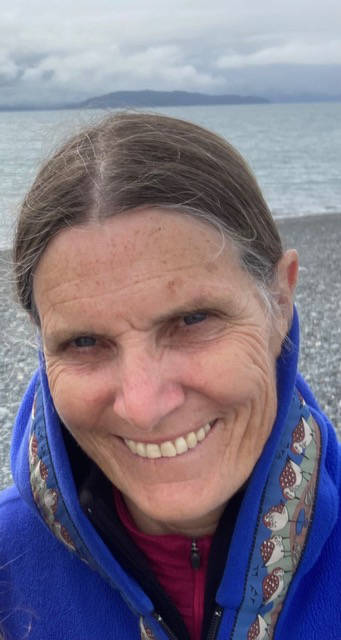In this year often defined by uncertainty, I have been blessed by the continued support of the Christian Science Society here in Homer, Alaska. This church has been holding regular Sunday worship services since 1968, except for a few months during the pandemic lockdown.
The few months we were not able to meet, we attended broadcast services from The First Church of Christ, Scientist, in Boston, Massachusetts. In a time when so many of us are re-examining what really means the most to us — material things or spiritual things like happiness and health — church has come to play a more important role.
I appreciate this year’s theme of the annual meeting of my church — “Grace to go forward,” which is from a well-loved hymn and is sung to one of H. Walford Davies’ “Hymns of the Kingdom.”
While many roadblocks seemed to arise from COVID restrictions, I was able to attend this meeting virtually, along with many other members from all over the world, as it was live-streamed from the church’s headquarters in Boston on June 7, 2021. Together we considered how God’s grace forwards progress in individual lives and collective church experience and saw how this also opens up new views of the world around us.
Acknowledging the challenges of the past year, Keith Wommack, a member of the Christian Science Board of Directors said, “Trials cause us to be transformed. As the New Testament teaches, it is Christ that does the transforming, and we gain each step forward through Christly self-surrender.”
In video reports from Europe, Asia, Africa, North and South America, members shared that, for them, the heart of church is about learning to respond more fully to God’s love — a living faith that reaches beyond the walls of any brick and mortar building.
A congregation in Washington, D.C., shared how they found new ways to carry out their activities and care for one another in the midst of lockdown restrictions. “I’ve appreciated that we’ve moved forward without outlining where the destination is,” said an interviewed member. “We know we’re moving forward with God, and we can rest secure that He will take us where we need to go. … That sense of grace really filled each step with purpose.”
A teen Sunday School class in Switzerland spoke about the value they found in continuing class online as they navigated changes to work and school life and considered the role of faith as a practical help. A member from São Paulo, Brazil, shared how his prayers for his church and the world brought him full healing in the face of severe COVID-19 symptoms. Christian Scientists typically endeavor to turn to God in prayer for healing, though the decision is always made by the individual, not the church.
We also got to preview a new exhibit titled “How do you see the world?” that is set to open at the church’s headquarters in Boston in late summer. The exhibit will explore progress in the world and connect visitors with the vision and ideals of the church’s founder, Mary Baker Eddy.
Project Director Sarah Ingraham from Luci Creative said, “We were so moved by how (Mary Baker Eddy) cares for people. You see that in her letters — how she deeply cares for humanity. You see that she is looking at a deeper sense of love, a deeper understanding of love… (the exhibit invites) visitors to take that journey as far as they want.”
The new president of the church, Mimi Oka, from New York City, New York, was introduced, and new members were welcomed from 24 countries, including Canada, Colombia, Italy, Japan, Democratic Republic of the Congo and the United States. Christian Science branch churches are active today in over 60 countries, spanning six continents, each of which are locally organized and democratically run.
Karin Holser has lived in Alaska for more than 40 years in numerous communities, including the Pribilof Islands. She has worked in various jobs including construction, teaching, grant writing and research. She enjoys the ocean and marine life, and does lots of kayaking and paddleboarding. Holser has attended worship services at the Homer Christian Science Society on and off since 1979 and is now a member residing in Homer.

